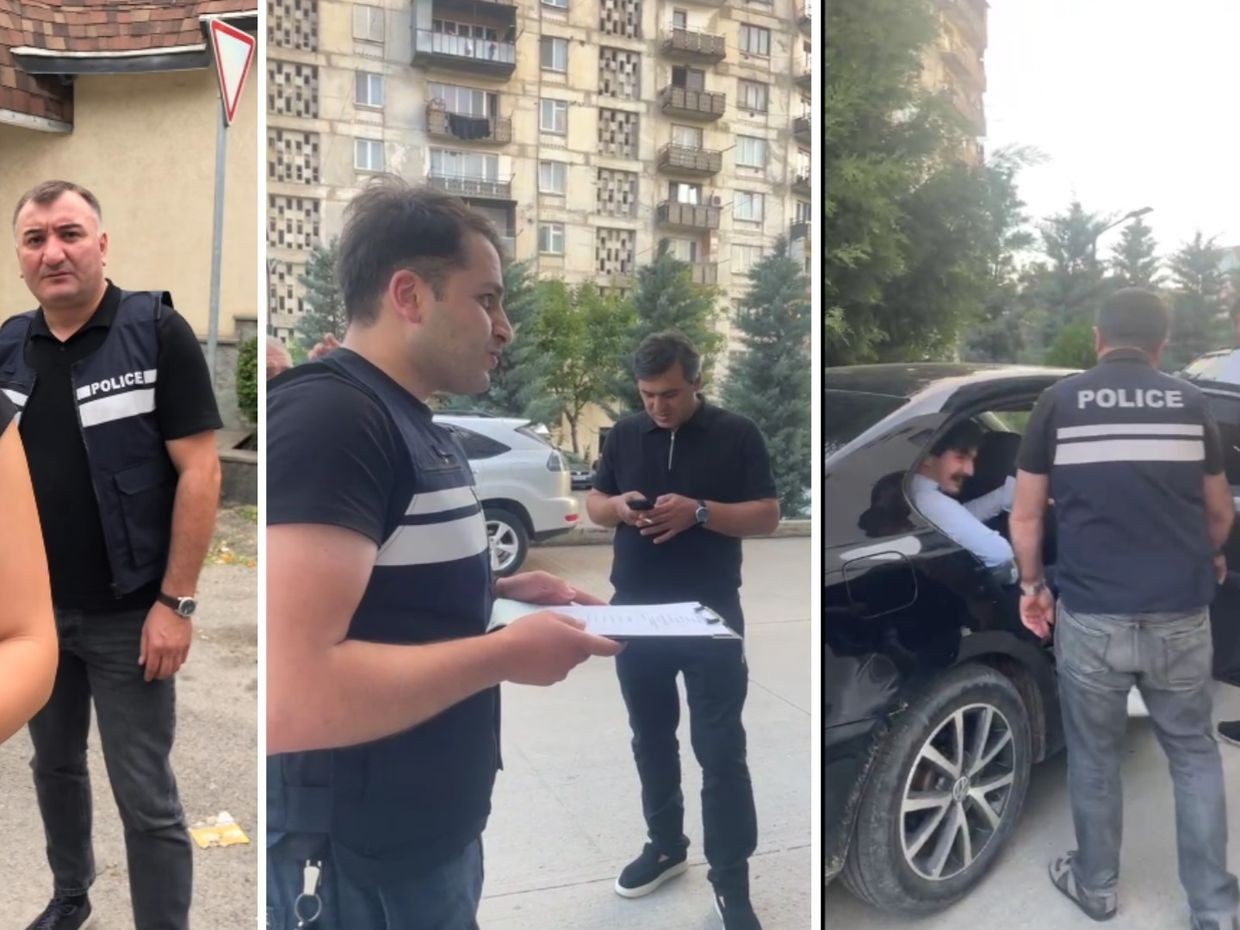Georgian Police step up drug testing of activists, raising fears of wider political persecution

Two more Georgian activists said Thursday that police showed up at their homes and demanded drug tests — a pattern echoed by several government critics in recent days. The episodes followed Georgian Dream’s legislative amendments in April to make the refusal of a drug test punishable by law.
Reports of increased police activity for drug testing began circulating on social media on Tuesday.
The opposition Lelo party said that day that police approached three of its members in different districts of Tbilisi, including Deputy Secretary General Oto Parulava, coalition communications head Levan Jorbenadze, and youth wing leader Beka Berishvili.
Parulava later stated that they all firmly refused the request and did not go for testing with officers. The police then gave them four hours to voluntarily report to the forensics bureau, which they also declined.
‘Our response is clear. We reject this degrading and humiliating practice the Russian regime [Georgian Dream] is trying to bring back to Georgia’, he wrote on Facebook.
In an official statement, Lelo linked the incidents to political persecution, saying, ‘No such actions will make us abandon the political struggle we have declared against the Russian regime’.
That same day, police also showed up to activist Beka Papashvili with the same demand. Officers approached him outside the home of Papashvili’s partner, Ketevan Khomeriki, where the activist was at the time.
‘According to operational information, you are likely under the influence of drugs’, one of the officers told Papashvili. He agreed to be taken in for testing.
‘I am completely clean, and this will be proven […] I’ll walk out of the [center] clean and head straight to Rustaveli’, the activist said, referring to Tbilisi’s central avenue, where anti-government protests have been ongoing since November.
‘The Russian regime will be defeated, and this kind of terror — ambushes outside people’s homes and so on — will come to an end’, he said in a Facebook Live stream recorded by his partner Khomeriki.
In the same livestream, Khomeriki said that shortly before the police arrived, a stranger called her claiming to be a Georgian Post employee and asked for her home address.
A similar incident was reported on Thursday by activist and prominent protester Tako Kheladze. She said she refused to go with the police and would undergo testing independently, as allowed by law.
That same day, activist couple Salome Barker and Zuka Berdzenishvili had a similar encounter. Berdzenishvili told police they were lying about having ‘operational information’ regarding possible drug use. He said they would undergo testing independently to prove that the police claim was baseless.
‘There’s no way you could’ve shown up based on any theoretical information, because my wife and I have been home since the day before yesterday and unless we secretly snitched on each other and arranged for the police to show up this morning, there’s no way you could’ve gotten any operational information’, he said.
In a Wednesday statement, the Interior Ministry denied that there were political motives behind the campaign, noting that 314 people across the country had been tested for drugs over the past week.
‘A police officer cannot and does not select or exclude individuals based on political views, which, in itself, grants no one an indulgence’, the statement read.
The ministry also said that out of those tested, 240 individuals were confirmed to have used drugs, while 23 refused testing and ‘will be fined just like drug users, as provided by the relevant legal provision’.
Under the legislative amendments passed in April, the state made the refusal to undergo a drug test punishable, resulting in a fine ranging from ₾500–₾2,000 ($185-$740) or administrative detention for up to 60 days.
Critics have focused on this measure even before the passing of the changes, arguing that the government intended to use forced drug tests as a tool to pressure its opponents.
Punishing refusal to take a drug test is just one part of Georgian Dream’s recent crackdown on drug policy, which in recent months has tightened significantly — including prison terms of up to six years for possession of more than five grams of marijuana.











